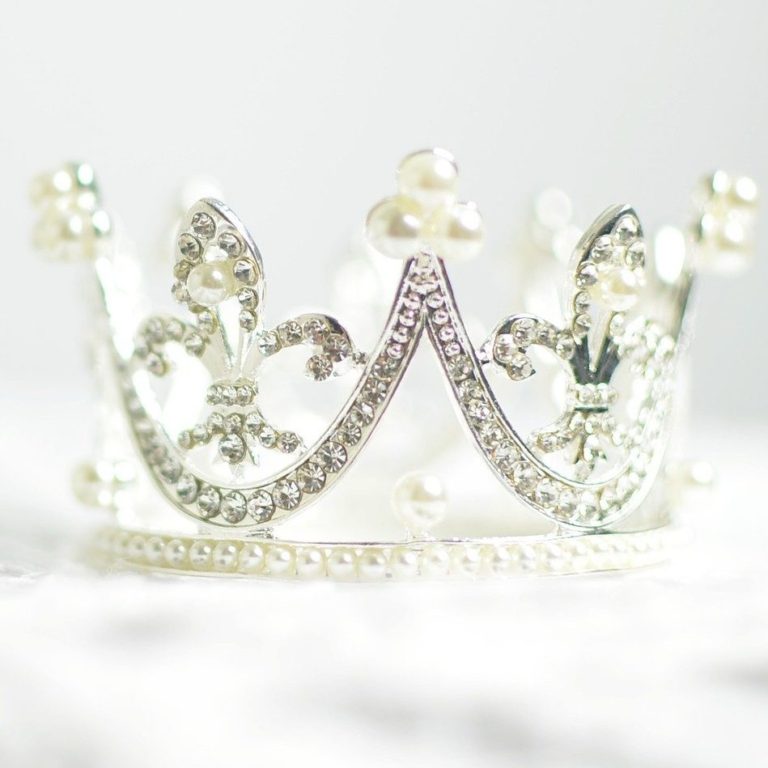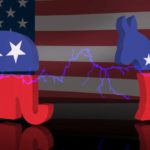Earlier this month, I finally listened to my mother’s good advice: I started to watch The Crown. I tore through the first season, delighting in the happy gray areas that accompany historical-ish dramas (wait, did that really happen? Wikipedia, come hither!). The series more than fulfilled its duty to me, proving a reliably bingeable distraction after long days spent in the throes of Zoom lessons and unit plans.
But after six delightful hours of escape, The Crown’s seventh episode, “Scientia Potentia Est,” shoved my mind back to work. The episode concerns Queen Elizabeth’s education. Though its title declares “Knowledge is Power” (in old-school Latin, nonetheless), watching Elizabeth renegotiate her schooling casts serious doubt as to which knowledges are indeed powerful – and where, and for whom, and toward what ends. As an educator, I found the episode to be a resonant and challenging hour of TV to watch, especially amidst 2020’s global pandemic and social reckonings, which have rightly raised overdue, searing questions about the knowledges we should, and should not, center in our classrooms.
The episode opens with glimpses of Elizabeth’s primary schooling. A French governess instructs her on dining etiquette (“It is always the sovereign who begins the meal”). Then, she scurries to Eton college for her tutorial on the Constitution. Before her lesson, Elizabeth stands in the school’s courtyard, a conspicuous little girl with a turquoise winter coat and bright red notebook. Boys and men in tophats and tails stride past her, paying her little mind. Clearly, she does not belong.
Tucked away in her private tutorial, Elizabeth writes dutifully in her red notebook as the Vice Provost delivers a dull lecture on Bagehot. At one point, the heir apparent interrupts him. Perhaps the courtyard is on her mind:
“Do you teach this to your other pupils?”
“No,” the Provost confesses. He passes her a pile of exams. “This is what I teach them.” Close up on a sheet of paper, crammed with what appear to be trig problems.
“Shouldn’t I know all of this too?” young Elizabeth intuits, but the Provost dismisses her. He calls the math “undignified.”
If you care about pedagogy – like me – the scene begs interpretation. Is it a defense, or an indictment, of classical education? On the one hand, we might resent Elizabeth’s exclusion from Eton’s full curriculum. Her education is too narrow, too feminized; she deserves access to the same trigonometry as the boys around her.
But we might feel relief for Elizabeth, too. Those boys, top-hatted and high-tailed, can’t help but read as laughably and lamentably privileged. As for that trig – the tight rows of decontextualized math come across as lamentable, too; relics of pedagogies past. Though we want for Elizabeth to learn what the boys learn, we question the value of what the boys learn and how they learn it.
Twenty years later, however, a grown Elizabeth has fewer questions. She knows how she feels about her education: she’s pissed. Speaking to her mother, the new Queen laments that she is ill-prepared to converse with politicians and statesmen. She wants to better “hold her own” in conversation. She is falling short, both as monarch and human: “Doesn’t one have a duty to know certain things?” She lists literature, philosophy, and science among them.
Elizabeth, and the episode, now seem to pen a love letter to the liberal arts. The letter grows longer, and more impassioned, as Elizabeth meets with Professor Hogg, her new tutor. The Queen, clutching her pearls with embarrassment, tells Hogg that she feels “on the back foot” and that she “can’t keep up” at work. Hogg affirms: “that’s no way to live, to be uninformed and entirely at someone else’s mercy.” Our sympathy spikes further as Hogg inquires as to which school certificate exams Elizabeth has passed. He ticks down the list, and the camera closes in on the Queen’s hands, tense with shame. She’s never even heard of these tests.
Furious, Elizabeth leaves the study session and storms into her mother’s quarters. She decries that her school years, spent on sewing and needlework, have “entirely failed” her. In an uncharacteristically raw moment, Elizabeth asks: “How could you have let me down like this?” Her mother counters with defenses that ring hollow and backward: “We taught you how to be a lady. A princess. What do you want, a degree?”
In these scenes, the episode’s take seems clear: knowledge is power. We want better for Elizabeth. Even if a canonical education has its issues, the Queen struggles to do her job, and suffers from self-doubt, because she hasn’t had one. The textbooks and boring lessons and standardized exams may be necessary prices to pay, given the sure footing the canon provides when working with (or against) those in power.
Here, educational justice is about access. Elizabeth needs and deserves to know what the boys know. Knowledge is power because if she knows what they know; if I know what you know; everyone can keep up, and challenge, and navigate, all from the same starting place. It’s an interesting perspective to consider in 2020, when the contents and nature of educational canons have never been more rightly criticized. Is there, perhaps, more merit to these shared bodies of knowledge than we permit?
But, not so fast. As the episode continues, things get more complicated. Elizabeth learns that she’ll be hosting President Eisenhower at Buckinghman, and suddenly, canonical knowledge is no one’s concern. Professor Hogg brings a stack of books to study, but the Queen says those will have to wait. She needs to know all about Eisenhower and his interests: “I’m going to need some more specific knowledge first.” Hogg mentions the military-industrial complex; Elizabeth remembers that Eisenhower was recently baptized; and, since they both know the same limited amount, they adjourn for 24 hours to conduct further research.
The playing field has been leveled. When not worrying about knowledge in the abstract – when actually doing her job – Elizabeth is no worse off than Hogg. The scene closes with a bit of seemingly non sequitur dialogue. Hogg confesses that he sometimes bets on horses, most recently for Early Mist. Elizabeth, lover of horses, perks up. She mentions Early Mist’s specific trainer and alludes to his innovative tactics. Hogg, clearly in the dark, confesses that he only backed the horse because he liked the name. Elizabeth looks shocked at his rudimentary approach. Suddenly, the professor is the uninformed party who can’t keep up.
The exchange underscores Elizabeth and Hogg’s equal footing. Now, we’re sensing a different argument – that knowledge and power are contextual. Elizabeth may lack her liberal arts foundation, which back-foots her with some men in some rooms. But when it comes to Eisenhower, she is as knowledgeable as Hogg. When it comes to horses, moreso.
Perhaps, then, the episode is not a love letter to the liberal arts. Perhaps it’s a critique of the arbitrary way that we prop up canonical knowledge as having absolute value. In fact, such knowledge proves an advantage only sometimes, only maybe. Here is the more progressive, on-trend argument of our day: that knowledge and intelligence are situated, and that we would do well to interrogate and disrupt our curricular and cultural privileging of current K-16 canons.
The closing act seems to advance the contextual argument. Elizabeth learns that key officials have kept Churchill’s two strokes from her. Furious, she consults Hogg as to her next steps. She wants to confront the men, but feels insecure again: “They’d out-debate me, out-think me, and out-maneuver me.” Hogg disagrees:
But this isn’t about education or intelligence. This is about integrity and principle. Ma’am, you say you don’t have what it takes to do battle with these people. You do. You were drilled for years in the finer points of our Constitution. You know it better than me, better than all of us. You have the only education that matters.
He closes by suggesting that the Queen summon Salisbury and Churchill and “give them a good dressing down, like children.”
His words work. In the next scene, Elizabeth, armed with her red notebook from those fourth-grade Bagehot lectures, delivers two deft dressing-downs, rife with constitutional theory. She reduces Salisbury to silence and Churchill to tears. In the end, Elizabeth more than keeps up. Seems Hogg is right – Elizabeth’s education was sufficient. She had the only education that mattered. She got the job done.
But is that enough? Satisfying as it is to watch Elizabeth hand it to the men who underestimated and insulted her, there are parts of this final sequence that give me pause. Reconsider Hogg’s words. He characterizes the situation as one of “integrity and principle” rather than“education or intelligence.” It’s troubling that an esteemed academic who has witnessed Elizabeth’s sharp mind, up close, still won’t describe her as schooled or smart. In his view, Elizabeth has had the only education that matters for her. To him, all that matters is that she can do her duty as Queen. He’s not thinking about her desires or capacities beyond that job. Is it any surprise, then, that he compares her to a governess giving a dressing-down, rather than a politician, or a leader, or a constitutional scholar?
Maybe that’shis problem. Maybe we’re meant to judge Hogg, to dismiss him as part of the old patriarchy. But I’m not so sure the writers intend this characterization, given other aspects of the closing sequence. Why, for example, does Elizabeth cling to her red fourth-grade notebook when addressing these men? It’s a clever, cohesive visual, but as an actual symbol, it’s troubling. Yes, Elizabeth’s education is with her, supporting her in victory; but it’s disappointing that we see the Queen rely on her school-girl notes, rather than on her internalized understanding of their content. Let alone her own mind.
The final scene diminishes Elizabeth further. After she describes her successful meetings to Philip, he playfully instructs “[his] new, tall woman” to “get on her knees.” She cancels her afternoon meetings. While Elizabeth doesn’t seem unhappy, and while this could certainly be viewed as an empowered choice on her part, it seems questionable, to me, that Elizabeth’s intellectual victory is so closely followed by her pleasuring a man at his immediate behest.
In the end, the episode passes confused judgment on the Queen and her schooling. On the one hand, we have scenes that seem to defend her non-traditional, role-specific education. Screw literature, philosophy, and trig. Elizabeth doesn’t need them to play the Queen. Her fourth-grade notes on the Constitution serve her just fine. But is it such a victory that Elizabeth fulfills her presumed obligations, first as Queen, then as wife? Does she deserve more? Are we convinced that her hyper-contextual education will serve her in all of her duties and pursuits and aspirations, not just as a monarch, but as a leader? A diplomat? A modern woman? A three-dimensional human being?
When “Knowledge is Power” fades to black, I’m left with more questions than answers. Which is okay. As an educator, I trust questions more than answers. And as an educator today, my hope is that our sector will continue to embrace and grapple with questions about knowledge and power before we rush to answers. Such questions are, like this episode of The Crown, quite complicated. Undoubtedly, there is merit and justice in breaking down privileged bodies of knowledge; in understanding intelligence to be situated and contextual. Knowing the canon is only one kind of smart. The professor and the Queen and the jockey require different knowledges; they are well-educated, each in their own way. But where does that leave the liberal arts? Do we owe our children – or one another – any degree of a common core? If so, what should its contents be? Certainly not dull lines of trig, and certainly not lists of books by or about white European men. But what do we include, and more painfully, what do we exclude, as we move forward?
Whatever I’m meant to feel at the end of “Scientia Potentia Est,” what I feel most is that I want more for Elizabeth. More than Hogg’s stack of dusty British textbooks; more than her own slim red notebook of special content, designed for her particular purpose at her particular time.
Of course, the Queen is an extreme example. Her role is preordained, and The Crown is a dramatized series. But we can learn from dramatized extremes. Indeed, the extremes are what make me think – and what bother me – the most. It bothers me that Elizabeth aches for an archaic, problematic, privileging canon. It also bothers me that she has been denied that canon and been taught only in context. Such extremes – knowledge as canon, knowledge as context – do not suit the Queen. She, like any student, deserves better than both.



